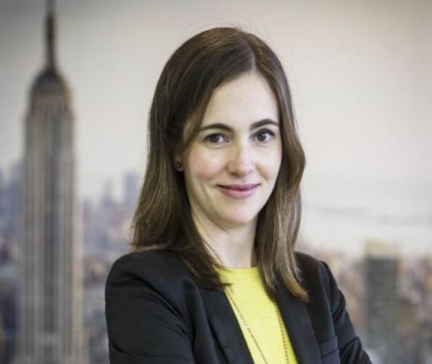The Spanish Alicia Asín, together with the Swiss Monique Morrow, both experts in AI and big data, have become a reference and example of the struggle of women to reach prestigious and responsible positions in the field of engineering.
Despite the fact that engineering is a field with less female representation than other areas of knowledge, the first algorithm in history is currently considered to be authored by women. Specifically, it is attributed to Ada Lovelace, a 19th century British aristocrat. Similarly, the development and evolution of programming is largely due to the American Frances Allen (1932-2020), who dedicated her life to the creation of simple and intuitive programs that could be executed quickly and efficiently. To Karen Spärck Jones (1935-2007) we owe some of the foundations of natural language processing (NLP), being a pioneer in information retrieval. Her contributions include the ITF and IDF search algorithms. Finally, among the many women working in the field of engineering, we could mention Teresa de Pedro (1944), who developed one of the first Artificial Intelligence systems in Spain. She is an expert in robotics and directed the Autopía programme, which led to the first Spanish autonomous vehicle.

Alicia Asín Pérez
Zaragoza, 1982
Període d'activitat: 2007 — Encara activa
Classificació geogràfica: Europa > Espanya
Moviments socio-culturals
Grups per àmbit de dedicació
Tecnòlogues > Enginyeres
Context de creació femenina
Ressenya
In 2006, computer engineer Alicia Asín (Zaragoza, 1982) founded Libelium together with her partner David Gascón. The flagship product of the company, which was born as a spin-off from the University of Zaragoza, is its Waspmote hardware platform, capable of wirelessly monitoring any environmental parameter and sending the information to the internet.
This technology incorporates 120 sensors that can be used for the most varied applications, such as fire detection, air and water quality control, parking systems that inform the driver of the availability of parking spaces, predictive control of volcanic eruptions, crop improvement, measurement of radioactive contamination, etc
Activitats
Justificacions
Biografia
Alicia Asín (Zaragoza, 1982) is a Spanish expert in Artificial Intelligence, IoT and Big Data. Co-founder and CEO of Libelium. In 2018 she received the EU Women Innovators award for her work at the helm of an Aragonese technology company focused on the internet of things. She is a computer engineer from the University of Zaragoza and graduated from ESADE Business School.
She is a researcher, focused on the field of IoT, Internet of Things, which is conceived as a new technological revolution, in the process of implementation. She participates as a speaker at international conferences on related topics, such as smart cities or wireless sensor networks.
She has been the first woman to receive the National Young Entrepreneur award at the 2014 meeting of the Spanish Confederation of Young Entrepreneurs (CEAJE) and between 2017 and 2018 her innovative capacity was endorsed with the Rey Jaime I awards (2017) and the EU Women Innovators award granted by the Council of Europe.
The prize awarded by the EU has allowed her to give visibility to women in the field of engineering, a field in which there are fewer and fewer women involved, and in which the Spanish Alicia Asín, together with the Swiss Monique Morrow have become a reference and example of the struggle for women to position themselves in positions of prestige and responsibility. In their own words:
"If girls don't find women they can identify with, they are not going to project themselves in those models and opt for that kind of studies. It's a bigger drama than it seems. The easy answer is "if girls go into nursing instead of engineering, it's because they like it better". We cannot remain in such a superficial analysis. In an increasingly digitalised world, technical careers and technology are going to be more and more prominent in all positions of responsibility. If women start to exclude themselves from these positions, the pay gap will widen even further".
In 2006, together with David Gascón, she co-founded Libelium, the company she chairs, which develops sensors for smart cities. Alicia argues that the internet applied to cities will improve people's quality of life, and that democracy will even be stronger thanks to the arrival of internet services in every corner of cities.
Obres
Bibliografia
Wikipedia, January 2022, https://es.wikipedia.org/wiki/Alicia_As%C3%ADn
Enfocament Didàctic
Biology-Geology 4th ESO Block Geology
It could also be cited in Computer Science.